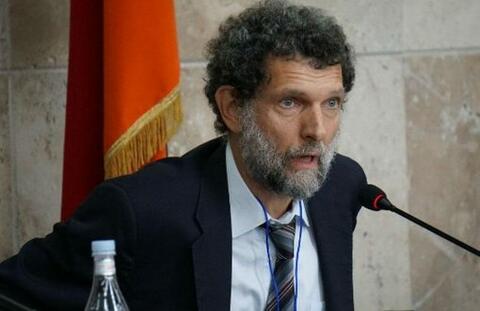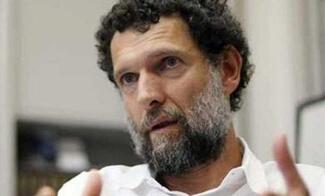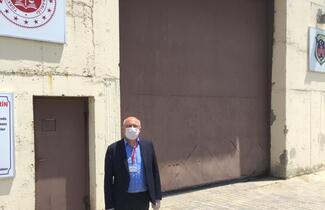
Kavala will be behind bars for 30 months by the end of this month. Sending a message from prison, he said, “What brings me towards pessimism is that an attitude that disregards universal legal norms has gained traction and legitimacy in judicial circles.”
Arrested businessperson and rights defender Osman Kavala will be behind bars for two years and a half by the end of this month. On this occasion, he has sent a message from Silivri Prison via his attorneys.
In his message "From Silivri, Two and a Half Years on" dated April 21, Kavala has noted that he can no longer maintain his optimism "due to the organized effort to extend his imprisonment, drawing strength from the President."
Stressing that "it is not the sole reason for this," he has added, "What brings me towards pessimism, even further, is that an attitude that disregards universal legal norms and applies laws arbitrarily and detached from their legal basis has gained traction and legitimacy in judicial circles."
Expressing his belief that "there is a growing sensibility towards justice and jurisprudence in society," Kavala has shared the following message:
'I was heartened by stated aims of judicial reforms'
"The end of this month will mark thirty months of my imprisonment. Due to the recent, third accusation raised against me, it is impossible to predict how much longer I will be in the Silivri Prison.
"The initial indictment, written sixteen months after my initial arrest in October 2017, was not only motivated by political statements but also took as its basis illegal wiretaps and old narratives fabricated by law enforcement officers and prosecutors who now stand accused of being FETÖ (Fethullahist Terrorist Organization) members.
"I believed that my arrest and this case, due to the lack of any concrete evidence and logical consistency, was exemplary of the deep-seated problems of the judicial system and would thus contribute to the recognition of these unlawful practices and help put an end to them.
"I was heartened by the Minister of Justice's reference to practices restricting personal freedoms and undermining the legitimacy of the law when he spoke about the aims of the judicial reform initiative last year.
'Attitude applying laws arbitrarily gains traction'
"However, it is no longer possible for me to maintain my optimism. The organized effort to extend my imprisonment, drawing strength from the President, is not the sole reason for this.
"What brings me towards pessimism, even further, is that an attitude that disregards universal legal norms and that applies laws arbitrarily and detached from their legal basis has gained traction and legitimacy in judicial circles.
"We see the continuation of practices that instrumentalize the judicial system, which had become systematic in the special courts under the sway of the Gülenist organization.
'Prompt re-arrests have become commonplace'
"After the judicial reform package was passed, the journalists have been convicted and arrests have continued. Local elected officials are being jailed for crimes they allegedly committed years ago.
"The immaterial torture innate in the practice of re-arresting someone promptly after their release, which I have also experienced, has become commonplace.
"These unlawful practices, which we can assume, are not limited to cases that attract a lot of public attention, violate basic rights, and cause lasting damage to the judicial system.
"Practices of illegal arrests are systematically undermining a fundamental understanding of the presumption of innocence and personal freedom.
"Indictments are drafted without serious examination of the evidence or any concrete evidence; they make the reasoning that should be the basis of legal decisions of arrest and conviction redundant, leaving it open to political influences and legitimizing opinions based on unsound reasoning and speculation.
'I believe there is a growing sensibility'
"Despite all this, I believe there is a growing sensibility towards justice and jurisprudence in society at large.
"I hope that the obvious inequity in the most recent law on the execution of sentences, makes the government's distinction between actual and politically charged, fabricated crimes, between judicial process and the instrumentalization of law more evident; and that it helps the public understand its grave consequences."


